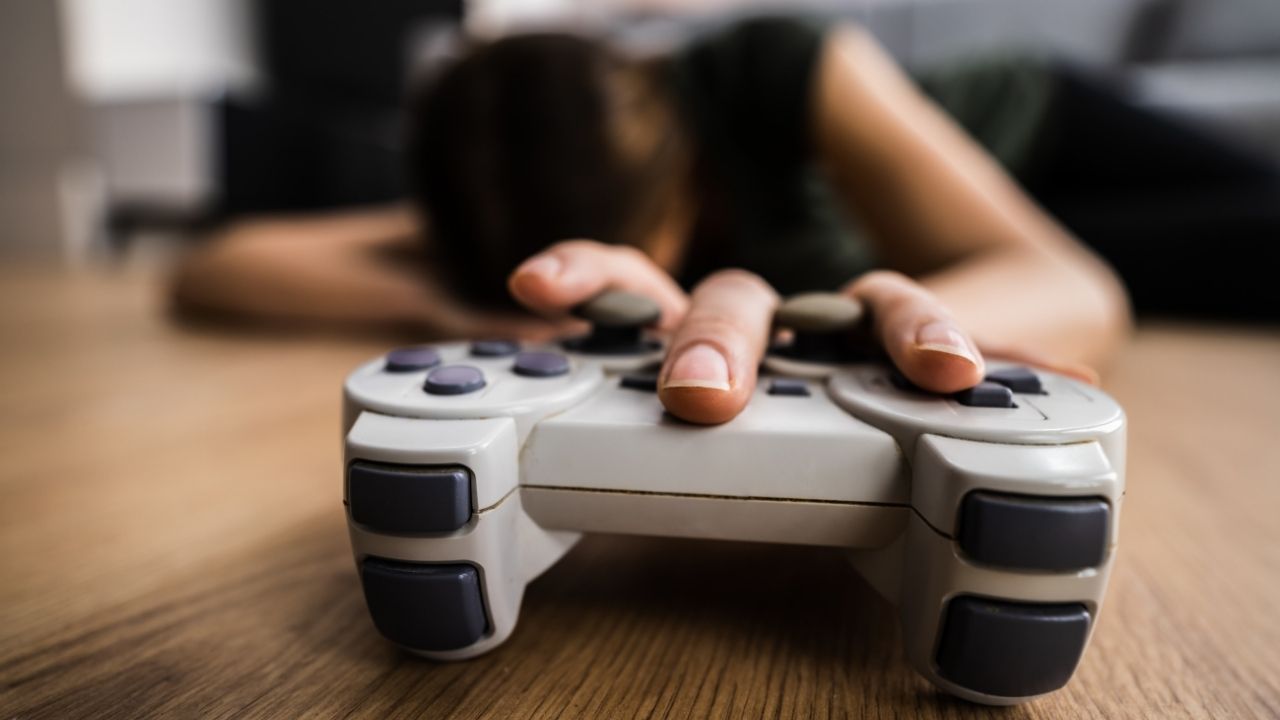Table of Contents
The relationship between video game addiction and Attention-Deficit/Hyperactivity Disorder (ADHD) has become a topic of increasing concern and debate in recent years. As more research emerges linking excessive gaming to attention problems, some individuals and families are exploring their legal rights and options.
Below, we discuss the complex issue of online game addiction potentially causing or exacerbating ADHD and what legal recourse may be available if you or a loved one has been affected.
Getting Help is Easy
Call Us Anytime. Nights And Weekends, We’re Available.
A Trusted, Experienced Partner
Fill out the form on the top of the page and a case specialist will reach out to you.
No Fees Unless We Win
No Win, No Fee. You Don’t Pay A Penny Unless We Win Your Case.
Why Children and Young Adults With ADHD Are Vulnerable to Video Game Addiction
Video games provide instant gratification and stimulation, which can be particularly appealing to those with ADHD, who often have lower baseline dopamine levels. People with ADHD can intensely focus on activities they find engaging, potentially leading to excessive gaming time.
Video games offer a structured environment where success is more easily achieved, providing an escape from real-life difficulties often faced by those with ADHD. The impulsive nature associated with ADHD can make it harder to regulate gaming time and habits.
In addition to this, anxiety and depression, which often co-occur with ADHD, may increase the likelihood of using gaming as a coping mechanism. These factors make children and young adults with ADHD more vulnerable to online game addiction. The question asked by video game addiction lawsuits is, are video game manufacturers doing enough to protect those with ADHD?
Suffered Video Game Addiction?
Understanding the Link Between Online Game Addiction and ADHD
Before exploring legal rights, it’s crucial to understand the relationship between internet gaming disorder and ADHD:
Correlation vs. Causation
Several studies, such as one published in the Journal of Attention Disorders that found 82% of participants with ADHD also have internet gaming disorder, have shown a correlation between excessive gaming and ADHD symptoms. However, establishing a direct causal relationship is challenging. Some researchers suggest that individuals with ADHD may be more prone to online game addiction, while others argue that too much time gaming can lead to or worsen ADHD-like symptoms.
Neurological Impact
Excessive online gaming can affect brain structure and function, particularly in areas related to attention and impulse control. This can potentially mimic or exacerbate ADHD symptoms.
Dopamine Release
Both online games and ADHD affect dopamine levels in the brain. The constant stimulation from games may alter dopamine sensitivity, potentially impacting attention and impulse control.
Sleep Disruption
Internet gaming addiction often leads to irregular sleep patterns, which can worsen ADHD symptoms or create ADHD-like behaviors.
Schedule a Free Case Review
Legal Grounds for Online Game Addiction and ADHD Claims
Several legal theories could potentially be applied to lawsuits for internet gaming disorder in those with ADHD. These include:
- Product liability: Arguments could be made that video games are defectively designed due to their addictive nature, which could lead to or exacerbate ADHD symptoms.
- Failure to warn: Game companies could be accused of failing to adequately warn consumers about the potential risks of problematic gaming, including its impact on attention and impulse control.
- Negligence: Claims might argue that game companies have a duty of care to prevent harm to their users, and that by designing highly addictive games, they’ve breached this duty.
- Consumer protection laws: These laws could be leveraged to argue that game companies engaged in unfair or deceptive practices by not disclosing the potential health risks associated with their products.
- False advertising: If game companies have made claims about the benefits of their games (e.g., improving cognitive function) without disclosing potential risks, this could form the basis of a false advertising claim.
Potential Compensation in Successful Video Game Addiction Claims
If a lawsuit linking online game addiction to ADHD were to succeed, potential compensation you could recover in a video game addiction lawsuit could include:
- Medical expenses: Costs of ADHD diagnosis, treatment, and ongoing therapy from a mental health professional
- Lost wages: Compensation for any income lost if your child is unable to hold down a job due to ADHD symptoms
- Educational expenses: Costs of educational support or tutoring needed due to ADHD-related academic challenges
- Pain and suffering: Compensation for emotional distress and decreased quality of life
The potential link between video game addiction and ADHD presents a complex legal and medical issue. While establishing a direct causal relationship in court remains challenging, growing research and awareness may pave the way for future legal actions and regulatory changes.
Schedule a Free Case Review
Steps to Take if You Believe You Have an Online Game Addiction Claim
If you believe video game addiction has caused or worsened ADHD symptoms for you or a loved one, consider these steps:
- Seek a medical evaluation: Obtain a professional diagnosis of ADHD and any related conditions. This documentation is crucial for any potential legal action.
- Document the gaming habit: Keep detailed records of gaming time, expenses, and any observed changes in behavior or attention.
- Gather evidence: Collect any relevant communication with game companies, marketing materials, or in-game notices about potential risks.
- Consult with a specialist: Speak with medical professionals who specialize in ADHD and online game addiction to better understand the potential link in your specific case.
- Keep treatment records: Maintain thorough records of any treatments, therapies, or medications related to ADHD and gaming addiction.
- Consult an attorney: Speak with a video game addiction lawyer from our network of law firm partners to evaluate the strength of your potential case.
For individuals who have been harmed by online game addiction, the path to legal recourse is not straightforward. However, as our understanding of gaming’s impact on brain function and behavior evolves, so too may the legal landscape.
Get Legal Help If You Have ADHD and You’re Suffering From Video Game Addiction
If you’re concerned about the impact of internet gaming disorder on ADHD symptoms, the most important first step is to seek professional medical advice. Whether or not legal action is viable, addressing the health impacts should be the primary concern.
As this field continues to develop, we’ll likely see more discussion about game companies’ responsibilities, consumers’ rights, and regulation’s role in protecting public health. Staying informed about these developments will be crucial for anyone considering their legal rights regarding video game addiction and ADHD.
When individuals with ADHD suffer from online game addiction, their future may be on the line. The video game manufacturers who specifically designed their games to make them addictive need to be held accountable. You can talk to a lawyer in our network of law firm partners to find out if you are eligible for a claim for ADHD and internet gaming disorder. Call The Goldwater Law Firm today to get started.


